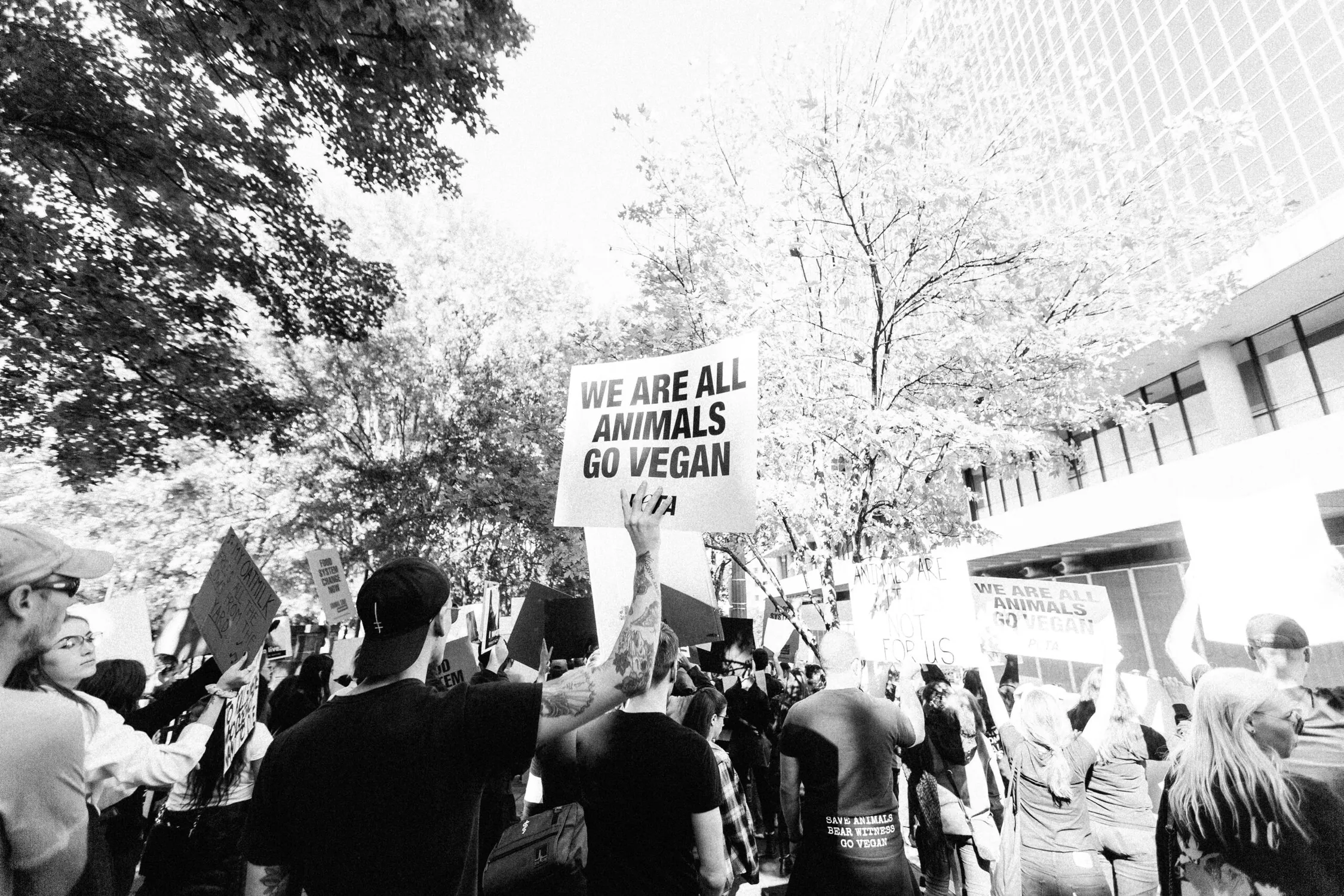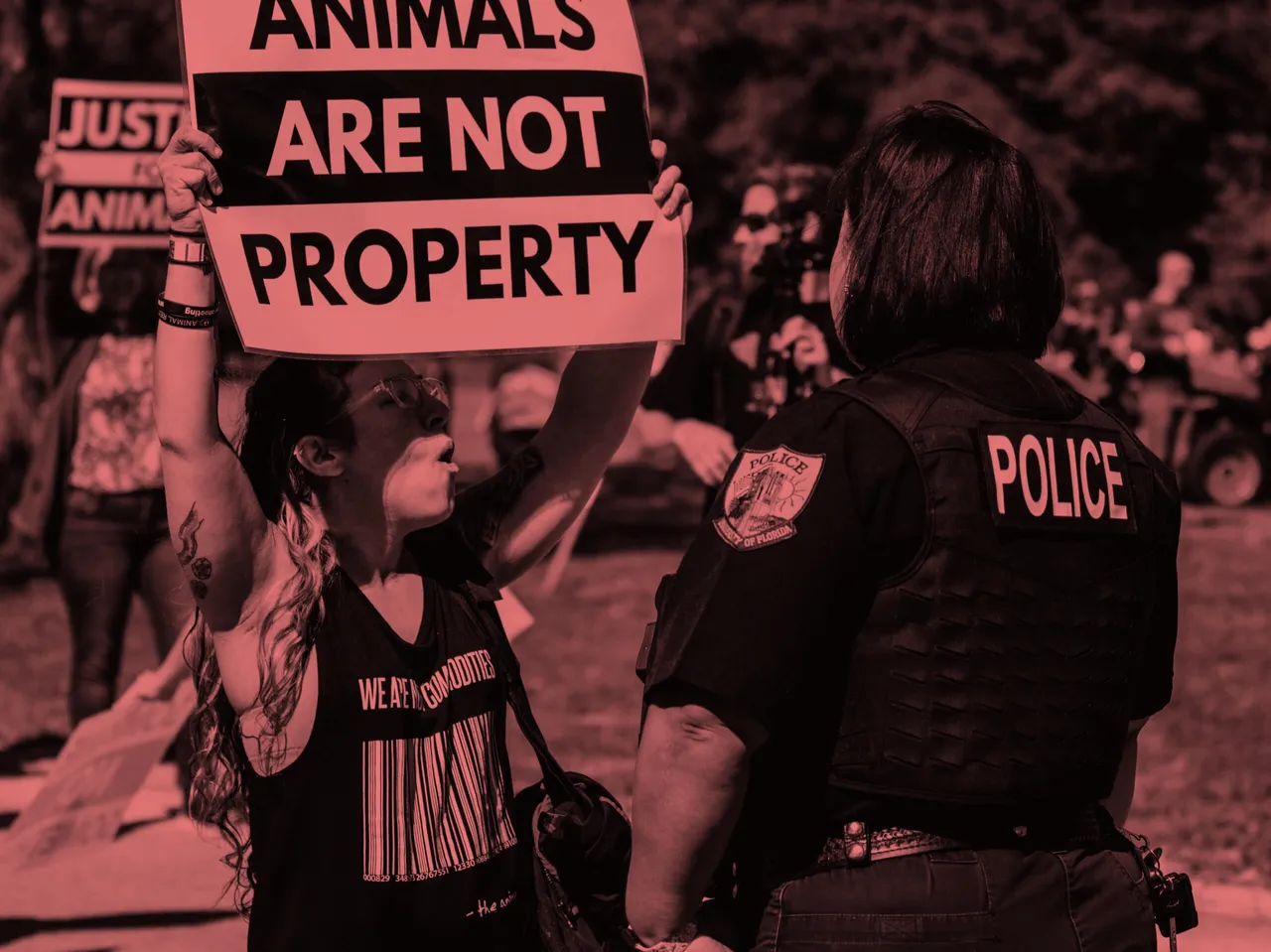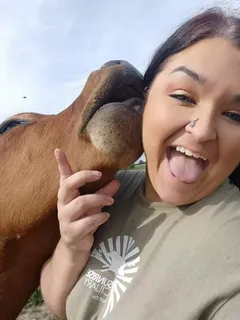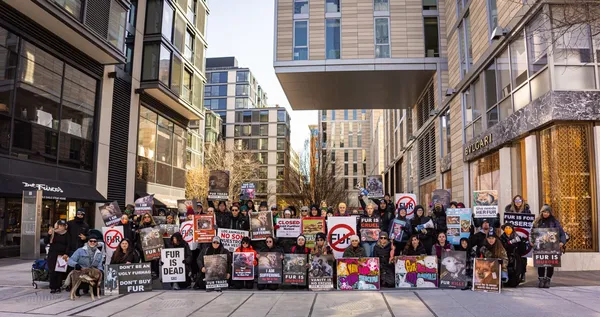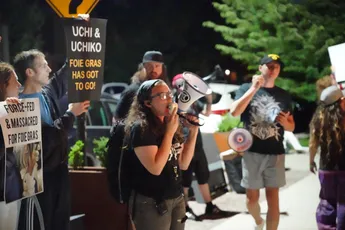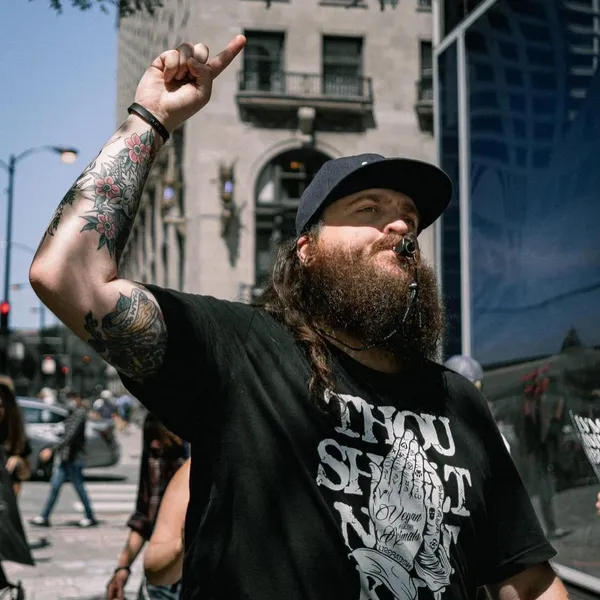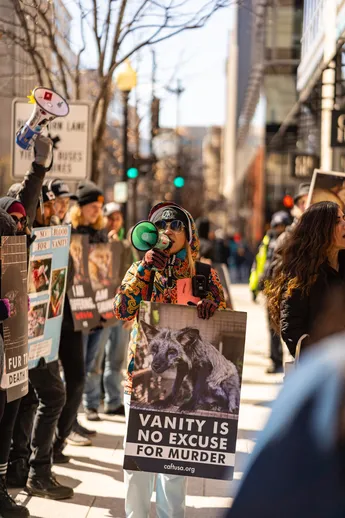Taking action
For change
Equipping you with what you need to fight for animal liberation!
Find a mentor Become a mentorRecurring events
Zoom workshops
Join our weekly workshops covering a wide range of animal rights and vegan topics. Open to the public, all workshops are archived on our YouTube.
View upcoming workshopsThe Animal Liberation Hour
Animal Liberation Hour is a podcast project of AAC, hosted by AAC Mentors interviewing leaders in the grassroots animal rights movement. Available wherever you listen to podcasts
Find episodes hereSee what our Mentees have to say
I have loved doing this program. Although I was already a vegan, I was looking for ways to further get involved in helping advocate for animals and their rights. My mentor and I came up with some goals of what I could do next... My mentor and I had regular calls where he answered my questions, encouraged me, and coached me on many aspects including how to respond to people during the in-person activism… Most importantly he gave me the courage to actually go out there and make a difference. This is a great program and I would highly recommend it
Bronwen London, UKSince joining AAC, I'm so much more confident in my activism! Doing outreach has become like second nature to me. I've also become really involved with my local animal sanctuary. The bond I've made with the animals is so special. I feel as if I'm really making a difference in the world.
Dennae Ohio, USAI am really grateful to have the opportunity to step up my activism an join AAC, especially with such a wonderful mentor like Michele Labrosse. She guided me in every step of the way considering my abilities and resources to get the most out of every initiative. I felt supported, encouraged and left behind my insecurities to make a difference for the animals. I will continue to join activism groups and make the world a better place for the voiceless.
Vanessa Mexico City, MX
